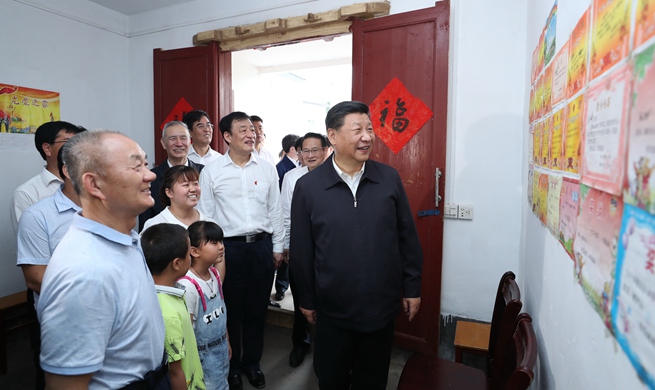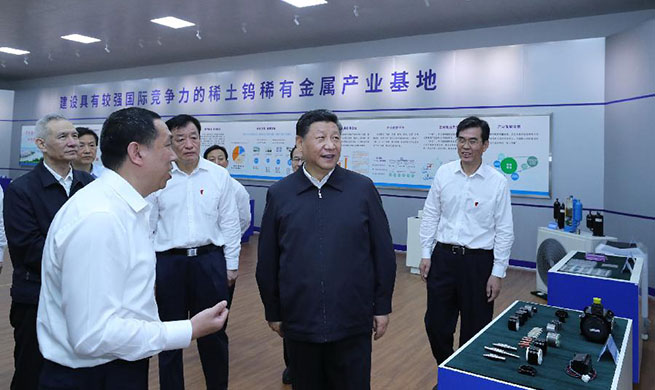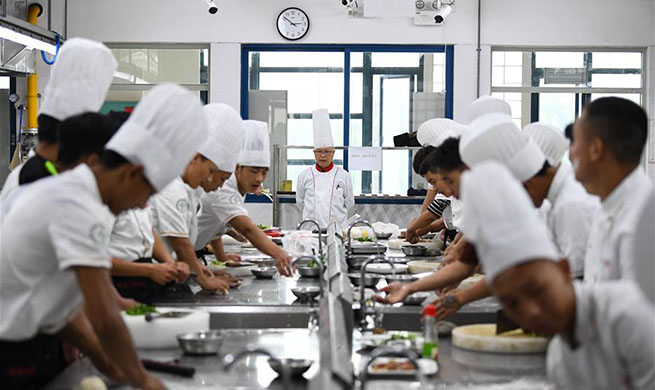SEOUL, May 21 (Xinhua) -- The U.S.-initiated trade row with China could hit South Korea's export-driven economy hard, policymakers and analysts here have said.
"There is a possibility for the impact ... to be much more severe than before," Finance Minister Hong Nam-ki, also deputy prime minister for economic affairs, told an emergency meeting on Monday.
Hong said the government will make all-out efforts to minimize the impact and prepare for all possible scenarios.
The U.S.-China trade tensions initiated by Washington have stoked worries about a global economic slump and rattled the global financial markets, plunging the South Korean currency to new lows in years.
South Korea relies heavily on exports to fuel the growth of economy. The United States and China account for almost 40 percent of the country's total exports.
The Korea International Trade Association said in a report on May 12 that the U.S. imposition of tariffs on Chinese goods was estimated to cause a reduction of 0.14 percent or 870 million U.S. dollars in South Korea's exports.
The report said countries that rely heavily on intermediate goods exports to China, such as South Korea, Germany and Japan, were likely to take a big hit in exports.
South Korean's semiconductor, electric equipment, steel and chemical products have a high percentage of processing trade, making them likely to be badly influenced by the U.S.-China trade disputes, the report said.
Meanwhile, the Korea Institute for International Economic Policy (KIEP) predicted in its latest report that the U.S.-China trade disputes could lead to a decline of 1.36 billion dollars in South Korea's exports.
If the trade disputes deepen further, South Korea's exports will be affected more negatively amid a global economic slowdown, the KIEP said.
South Korea's exports kept falling for five months through April due mainly to the downturn in the business cycle of the global chip industry.
The South Korean government had previously predicted a possible export rebound in the second half of the year, but the U.S.-China trade disputes blurred the rosy prediction.
The country's real gross domestic product (GDP), adjusted for inflation, contracted 0.3 percent in the first quarter of the year compared with the previous quarter.
In the latest flare-up of U.S.-China trade tensions, Washington increased additional tariffs on 200 billion dollars' worth of Chinese imports from 10 percent to 25 percent earlier this month, and has threatened to raise tariffs on more Chinese imports.
In response, China has announced that it will raise additional tariffs on a range of U.S. imports from June 1, and "will fight to the end."
Amid widespread worries about global economic uncertainties incurred by recent tariff hikes, China has reiterated that escalating trade tensions "serve no one's interests" and will "tie down the world economy as well."
Beijing has repeatedly called on the United States, which started the row, to get back on the right track as soon as possible and meet China halfway to achieve a mutually beneficial and win-win agreement on the basis of mutual respect.













